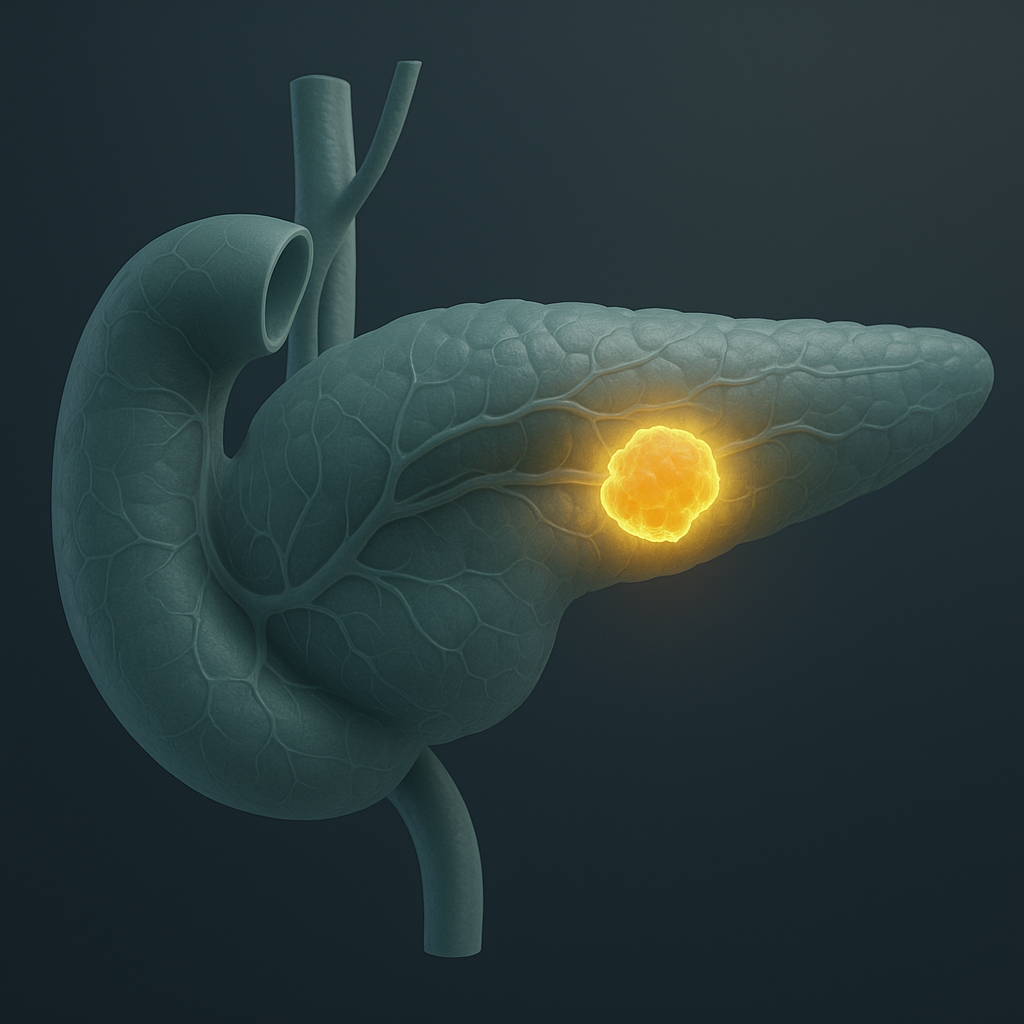

A novel 13-biomarker panel combining cell-free and exosomal microRNAs achieves 97% accuracy for pancreatic ductal adenocarcinoma detection, with 91% accuracy even for early-stage disease. When combined with CA 19-9, this liquid biopsy approach creates near-perfect diagnostic accuracy (AUC 0.99) and represents a potential breakthrough for early pancreatic cancer detection.

Biomarker Profile & Mechanism
- Novel approach: Combines cell-free microRNAs (cf-miRNAs) and exosomal microRNAs (exo-miRNAs) in liquid biopsy format
- Target population: All stages of pancreatic ductal adenocarcinoma (PDAC), with particular focus on early-stage disease
- Biological rationale: cf-miRNAs provide high sensitivity while exo-miRNAs offer tissue-specific “ZIP code” information for enhanced specificity
- Detection window: 15-20 year timeframe from initial KRAS mutation to invasive cancer provides opportunity for intervention
Development Milestone Details
- Initial validation: 101-patient study demonstrated successful discrimination between PDAC patients and controls
- Panel refinement: 13-biomarker signature maintains robust performance across all disease stages
- Current trial status: PANXEON study enrolling 1,207 PDAC patients and controls for comprehensive validation
- Performance metrics: Training, validation, and testing cohorts show AUC values of 0.95-0.98 for all stages
Practice Implications
- Diagnostic enhancement: Addresses CA 19-9 limitations, which misses 15% of pancreatic cancer cases
- Early detection potential: 91% accuracy for stage I-II cancers could enable curative interventions
- Post-surgical monitoring: Biomarkers demonstrate utility for disease activity surveillance
- Liquid biopsy advantage: Non-invasive approach overcomes tissue sampling challenges in pancreatic cancer
Development Status & Next Steps
- Current phase: Large-scale validation in PANXEON study with 1,207 participants
- Regulatory pathway: Early findings support progression toward clinical implementation
- Commercial development: Technology being advanced through Beckman Research Institute at City of Hope
- Timeline expectations: Pending completion of PANXEON study validation for regulatory submission



